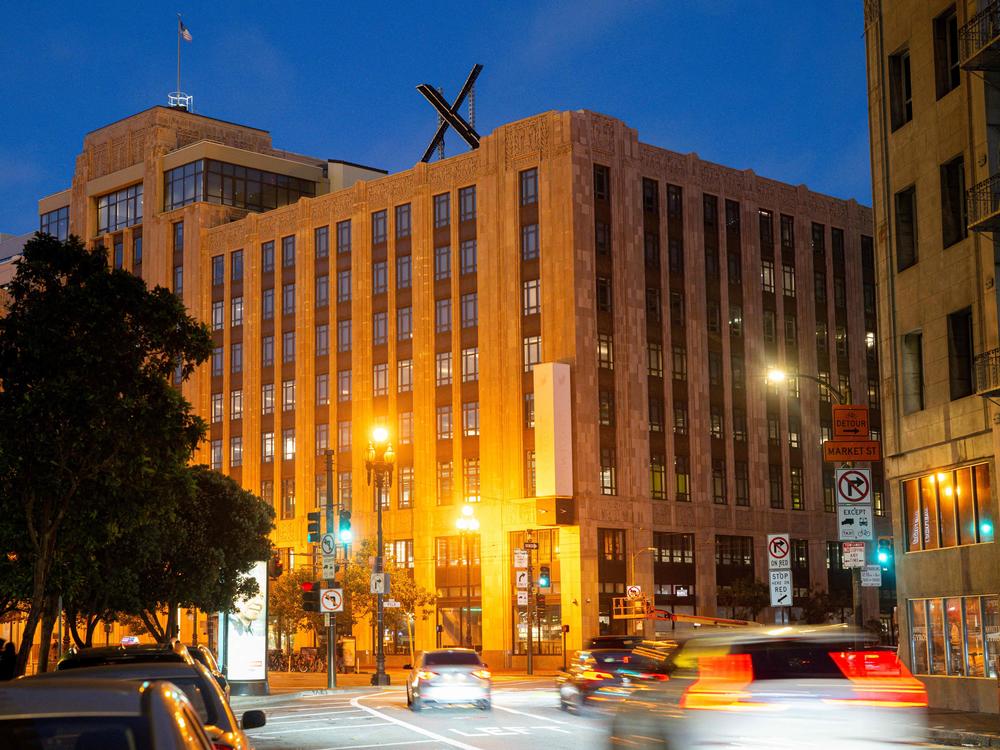Section Branding
Header Content
Elon Musk sues disinformation researchers, claiming they are driving away advertisers
Primary Content
Elon Musk's X, the company formerly known as Twitter, is suing a nonprofit that researches hate speech on social media, accusing it of conducting "a scare campaign to drive away advertisers."
The suit alleges that the Center for Countering Digital Hate violated Twitter's terms of service and federal law by scraping data from the social media site. It claims the group cherry picks posts from the site to make it look like Twitter is flooded with hate speech and other harmful content, in order to silence users.
In its complaint filed in federal court in California, the company alleged that CCDH and its British affiliate are "activist organizations masquerading as research agencies" and said the group was "advocating for censorship on the internet."
Among the research that CCDH is best known for is a 2021 study showing that 12 people were behind most of the misleading claims and lies about COVID-19 vaccines on Twitter, Facebook, and Instagram.
"Musk is trying to 'shoot the messenger' who highlights the toxic content on his platform rather than deal with the toxic environment he's created," CCDH CEO Imran Ahmed said in a statement. "CCDH has no intention of stopping our independent research – Musk will not bully us into silence."
CCDH and other outside researchers have tracked increasing levels of hate speech on the platform since Musk bought it last fall. The entrepreneur, describes himself as a free speech absolutist, has loosened rules about what can be posted and reinstated the accounts of white supremacists, far-right extremists, and Qanon conspiracy theorists. Over the weekend, he allowed Ye, the rapper and mogul formerly known as Kanye West, back after a months-long suspension for posting an image of a swastika inside a Star of David.
Twitter disputes the claim that hateful content is on the rise, saying views of such posts have declined. "Free expression and platform safety are not at odds," the company wrote in a blog post on Monday.
Musk frequently uses heavy-handed tactics to take aim at critics. In December he suspended several journalists who covered the company (he reinstated most of them days later, under pressure from press freedom advocates), and banned a user who posted about the movements of his private jet using publicly available information. In 2018, he hired a private investigator to dig into a British man who had criticized Musk's efforts to help rescue a boys' soccer team in Thailand.
Twitter's anger with CCDH appeared to come to a head after the group published a report in June saying Twitter did not take action against 99 of 100 tweets the group reported for violating the platform's rules against hateful conduct. Twitter CEO Linda Yaccarino said the findings and other research cited in a Bloomberg News story about hate speech and violent content were based on "incorrect, misleading, and outdated metrics."
"Despite our continued progress, the Center for Countering Digital Hate (CCDH) and its backers have been actively working to assert false and misleading claims encouraging advertisers to pause investment on the platform," the company wrote in Monday's blog post.
The lawsuit comes as Musk's chaotic management of the company and abrupt changes in policies and features have sent many users to Twitter alternatives, including rival Meta's newly launched Threads, and as Twitter's advertising revenue has plunged.
It also comes at a moment when Republican lawmakers and right-wing activists are claiming that researchers who study online disinformation are actually trying to censor contrary views.
Copyright 2023 NPR. To see more, visit https://www.npr.org.

